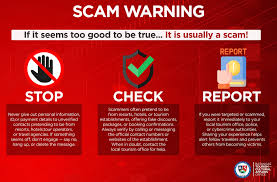The Philippines is known for its hospitality, warmth, and fun-loving spirit—but like any country that welcomes millions of visitors, it also attracts its share of scams and petty fraud. Luckily, the Philippines Community (필리핀 커뮤니티) has become an early-warning network that helps newcomers and locals stay one step ahead. Here’s how community wisdom and shared vigilance protect people every day.
1) Why online communities matter for safety
No guidebook can update itself daily, but community threads do. Members constantly share real-time reports about suspicious messages, overcharging taxis, or fake rental listings.
This constant information flow turns the 필리핀 커뮤니티 into a neighborhood watch that spans cities and islands. What one traveler learns today might save another from the same trap tomorrow.
2) Common scams exposed by the community
The most frequently discussed scams inside Filipino travel and expat forums tend to fall into a few recurring categories:
- Transport tricks: “No meter” taxis, rigged ride fares, or drivers insisting on “flat rates.”
- Rental fraud: Fake condo listings that demand deposits before property viewings.
- Tourist price inflation: Vendors or guides quoting foreign visitors double rates.
- ATM skimmers: Card cloning at small standalone machines.
- Charity impostors: People pretending to represent organizations asking for “urgent donations.”
Each time someone reports one, moderators tag and archive the warning for others to find quickly.
3) How members verify and validate information
Trust is built through evidence. When someone posts a warning, others often confirm with screenshots, receipts, or follow-up experiences. This peer-verification model filters truth from rumor far faster than official bulletins.
Community moderators play a big role too—they step in to cross-check details, remove false alarms, and label verified threads for visibility.
4) Street-smart behavior the community teaches newcomers
Over time, recurring advice inside the Philippines Community has shaped a set of safety “golden rules”:
- Always ask for a metered fare before getting into a taxi.
- Use verified platforms (like Grab or official shuttles) for airport pickups.
- Inspect ATMs—avoid any machine that looks tampered with or isolated.
- Confirm prices first, whether for tours, bars, or small shops.
- Be polite but firm—Filipinos respond best to calm confidence.
- Don’t flash cash or jewelry—it signals vulnerability.
- Cross-check addresses and never send deposits to new accounts.
These simple habits make most visits incident-free.
5) Real examples of community protection in action
In many cases, forum vigilance has prevented losses. One member shared how a supposed “Clark villa” host demanded full prepayment through an anonymous account. Others quickly flagged it, posted proof of identical photos on multiple fake sites, and helped moderators get the listing removed within hours.
In another thread, locals warned about cloned QR menus at a popular bar—users confirmed by checking mismatched URLs before scanning. Within a day, the real establishment posted an apology and replaced every code.
That’s the power of crowdsourced safety.
6) Polite assertiveness—the Filipino way to stay safe
Safety in the Philippines doesn’t mean suspicion; it means awareness delivered with respect. The community constantly reminds newcomers to blend vigilance with cultural sensitivity.
Being firm without aggression earns better outcomes. For example, saying “Could you please turn on the meter before we go?” sounds more natural and effective than confrontation. Understanding that tone matters as much as facts is part of the local wisdom shared daily in 필리핀 커뮤니티 threads.
7) How to contribute to safety threads responsibly
When posting a warning:
- Stick to verified facts and time stamps.
- Avoid naming individuals publicly—focus on places or methods.
- Update threads once an issue is resolved to keep accuracy.
- Thank those who helped verify your post.
This keeps the safety ecosystem credible and fair to both travelers and locals.
8) Community trust as the best defense
The Philippines Community operates on mutual respect. The more users share, the safer everyone becomes. Every scam avoided reinforces a cycle of awareness and gratitude.
Over time, this has created a culture where people don’t just travel through the Philippines—they travel with it, supported by a vast, protective network that genuinely cares.
Final Thought
Scammers rely on silence. The 필리핀 커뮤니티 breaks that silence by turning stories into shields. Through transparency, empathy, and a steady flow of firsthand updates, it proves that safety isn’t just a rulebook—it’s a shared promise between people who look out for each other.









